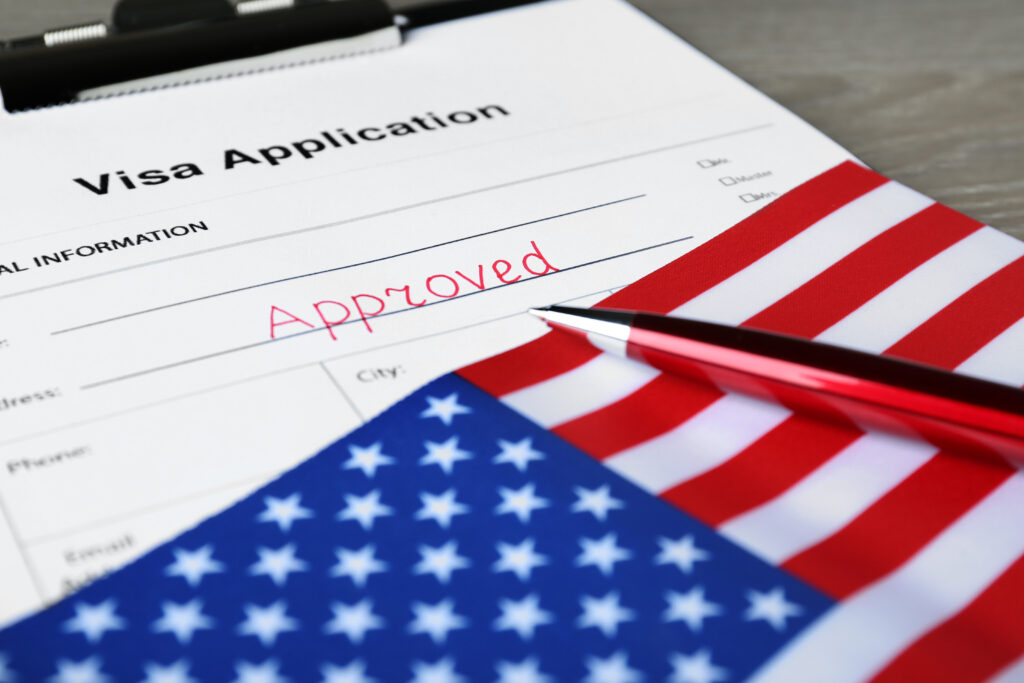

Whether you’re an entrepreneur with a groundbreaking business idea, or an investor seeking new opportunities abroad, navigating the complexities of immigration law can be a challenging endeavor. The E-2 Visa, a non-immigrant visa allowing foreign investors to enter and work in the United States, can be the doorway to your American dream. However, securing such a visa requires extensive documentation, rigorous preparation, and careful attention to the intricate details of immigration law.

The E-2 Visa, also known as the Investor Visa, is a non-immigrant visa option that allows individuals from treaty nations to conduct significant business operations within the United States. This visa type is specifically geared towards investors, entrepreneurs, and business owners who aim to either establish or purchase an ongoing business enterprise in the U.S. This visa is granted to individuals who can demonstrate a substantial investment in the U.S. and are involved in trade or possess international trade connections, along with operating a genuine and active enterprise.
The E-2 Visa is defined as a treaty investor visa category that permits nationals of a treaty country – a country with which the U.S. maintains a treaty of commerce and navigation – to be admitted to the United States when investing a substantial amount of capital in a U.S. business.
To be eligible for an E-2 Visa, applicants must meet specific criteria:

The E-2 Visa process can be a meticulous and lengthy one, demanding careful planning and thorough preparation. Here’s a broad overview of the process:
Before initiating the E-2 Visa application process, it’s pivotal to develop a comprehensive business plan showcasing the durability of your business, projected financials, and employment opportunities that it might trigger. Additionally, you need to make a substantial investment in the business. It could be through buying an existing business, starting a new business, or investing in a franchise.
The application process begins with filing out and signing Form DS156E as many consulates still require this form as part of the submission process. This form gathers investment information that can be used to fill out the next form, Form DS-160, Nonimmigrant Visa Application. The DS-160 must be filled out accurately and submitted online to the U.S. Department of State. When submitted, the DS160 will be filed at the U.S. embassy or consulate having jurisdiction over your permanent residence outside the U.S. After submitting the form, you will be required to pay the MRV fee and schedule an interview at the applicable U.S. Embassy or Consulate.
Application process for those already in the U.S. in another status
If you are already in the United States in another immigration status, it is also possible to file an E-2 change of status with the US Citizenship & Immigration Services, if appropriate.
Substantial documentation is required to validate your E-2 Visa application. Each U.S. embassy or consulate have specific guidelines on the way they want the E-2 application organized. Essential documents include proof of nationality, evidence of substantial investment, a detailed and viable business plan, proof that the business will not be marginal, and evidence that the funds are controlled by the investor, are committed and irrevocable. Additional documents may be requested based on individual circumstances and the specific demands of the U.S. Embassy or Consulate where the application is submitted.
Once you have successfully submitted your visa application, and after all the documentation is reviewed and approved by the Embassy or Consulate where you applied, you will be issued an E-2 Visa. The E-2 visa is usually issued in 2-5-year increments, and a 2-year period of stay is given upon arrival in the United States. Every time you enter the U.S. after travel abroad, you will be given another two years, provided your visa is still valid.
It is advisable that you renew your E-2 visa through the U.S. consulate or embassy rather than through USCIS to provide you with immediate work and travel authorization. Filing an E-2 petition through USCIS allows work authorization after approval but you would still need to obtain an E-2 visa to re-enter the U.S. after foreign travel.
How Our E-2 Visa Immigration Lawyers Can Help
Our experienced immigration attorneys can help investors navigate the complicated process of qualifying and applying for an E2 Visa. Our legal team can provide invaluable assistance for foreign investors in a variety of ways:

Here are some of the most commonly asked questions related to E-2 Visas:
Yes, there are several restrictions that come with an E-2 Visa. An applicant must demonstrate that they will be engaged in a substantial, ongoing, and direct investment in the U.S. business, as well as remain in the U.S. primarily to direct and develop the investment enterprise. Additionally, an applicant must also show that their investment is substantial enough to ensure the successful long-term operation of the business.
E-2 Visas are issued for an initial period of two to five years, depending on the applicant’s country of origin. The visa can then be renewed indefinitely as long as the foreign national remains eligible for an E-2 Visa and abides by immigration laws.
Yes, spouses and unmarried minor children (20 years old and younger) of the E-2 Visa holder may be eligible for a dependent E-2 visa. They need not hold the same nationality as the Principal E-2 visa holder. Dependents are allowed to live and study in the U.S. However, only spouses are allowed to work incident to their E-2 status. This means spouses do not have to separately file an Employment Authorization Document (EAD) in order to work. Dependent children in E-2 status are not granted work authorization.
An E-2 Visa is only a non-immigrant visa and does not provide a pathway to permanent residency or U.S. citizenship. However, individuals who hold an E-2 Visa may be eligible for different types of immigrant visas that can eventually lead to permanent residence in the United States.
The amount of money required for an E-2 Visa depends on the type and size of the business, as well as its projected costs and profits. Generally, the amount must be substantial enough to prove that the applicant can sustain a successful business in the U.S., and has the financial resources to do so.
While there is no explicit rule preventing an E-2 Visa applicant from using their personal bank account for business transactions related to the investment, it is strongly recommended to keep business and personal finances separate. The USCIS and consular officers scrutinize the source and path of the investment funds closely. Having a dedicated business account adds credibility to your investment and makes financial transparency easier during the E-2 Visa application process. However, it’s always best to consult with your immigration attorney to understand how best to handle your business transactions.
Yes, you can use business cash for E-2 Visa transactions. However, it is important to properly document every transaction related to your E-2 Visa investment. This includes all business purchases, operational expenses, and any other transactions made using business cash. The USCIS and consular officers scrutinize the source and path of the investment funds closely, so any cash transactions need to be clearly recorded and traceable. Remember to consult with your immigration attorney to ensure you are handling business cash appropriately in the context of your E-2 Visa application.
In any case, foreign investors should consult with an experienced immigration attorney to determine if they meet the eligibility requirements and are able to invest the necessary funds for an E-2 Visa. Our legal team at Bashyam Global LLP is here to guide you through every step of the process, ensuring that your application is successful. Contact us today for a consultation.

Despite the numerous advantages of an E-2 Visa, applicants often face a variety of challenges during the application process. Some of the most common obstacles include:
Substantial Investment Requirement: There is no set monetary amount deemed as ‘substantial’ for an E-2 Visa. This leads to uncertainty and can be a significant hurdle for applicants.
Proving Business Viability: Demonstrating that the business is not marginal and that it can generate enough income to support the applicant and their family can be challenging.
Treaty Country Requirement: E-2 Visas are only available to nationals of countries that have a treaty of commerce with the U.S. This restricts the availability of the E-2 Visa to many potential applicants.
Physical Presence Requirement: Maintaining the majority of presence in the U.S. to manage the investment can be an issue for individuals with commitments in their home country.
Being aware of these potential obstacles can help applicants prepare in advance and increase the likelihood of a successful outcome. Here are some proactive solutions to overcome these challenges:
Overcoming these challenges can be a daunting task, but with the right guidance and planning, it is certainly achievable. At Bashyam Global LLP, we strive to provide our clients with solutions to their unique immigration challenges. Contact us today for a comprehensive consultation.

At Bashyam Global LLP, we understand the intricacies of the immigration process and are committed to making your E-2 Visa application as smooth and successful as possible. You deserve the help of an experienced immigration lawyer. Our attorneys are ready to provide the tailored assistance you need. Don’t navigate this complex process on your own. Allow us to guide you every step of the way. Contact us online or call us at 919-833-0840 today for a comprehensive consultation. We look forward to assisting you on your immigration journey.